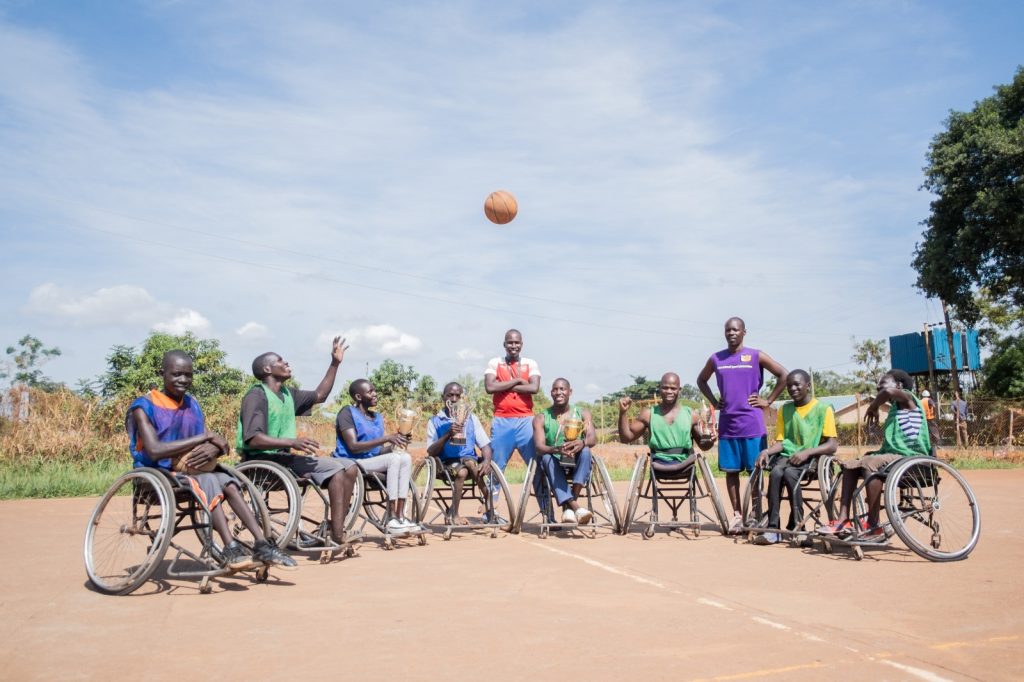What happens if the information flow is disrupted?

In a crisis, those who cannot be informed through regular media channels are particularly disadvantaged. It’s about people in our society who speak a completely different language.
We live in Kerala, where people speak Malayalam. My Malayalam skills would not be good enough to draw detailed information from radio or television reports, let alone reading an article. Luckily, there are newspapers and TV channels which are in English, otherwise Paul and i would both be pretty much lost…
I cannot imagine how isolated one will feel if ones need for information cannot be met during a time when the world is fundamentally changing almost every day.
Faruk Musema from Uganda, a 2019 kanthari, alerted us a few weeks ago about one of his target groups which completely falls behind as soon as there is a massive influx of information.
I am talking about the many deaf and hearing-impaired people in his region who, until a few weeks ago, felt that something had changed, but were not sufficiently informed about the cause of that change. Many of them can’t read. And lip-reading capabilities are insufficient.
Faruk is one of only a few in northern Uganda who speak fluent local and international sign language. He founded Ability Sports Africa, an organization that works with wheelchair users, the blind and the deaf.
Adaptive Sports, he says, reveal the limits of the possible. Fascinated by sports from a young age, he remembers his “pinching point” (a kanthari term for a moment in life that redefines everything) years ago when he watched wheelchair users play basketball. He still enthusiastically recalls: “The athletes were quick and skillful as they turned, sometimes taking sharp curves on one wheel. I wanted to be able to do that.”
He tried and failed miserably at first. Many times, he fell on his face and had difficulty balancing the ball while controlling the wheelchair. “Compared to the professional wheelchair users I was disabled. But after a lot of training, nowadays I feel well integrated.”
Faruk calls himself a “walker,” and his goal is ‘reverse inclusion’.
I always had a problem with the word “inclusion.” Does it mean that society brings people with disabilities into their midst, to literally include them/’lock them in’? As a blind woman, I depend on the generosity of the non-disabled and hardly have a say in what I need or want. I felt that I had to always adapt to the sighted. Personally, therefore, I prefer to use the term ‘integration’. In the sense of “enrichment” or even “improvement”.
But Faruk convinced me of his concept of “Reverse Inclusion”.
Faruk says: “Wouldn’t it be great if the Paralympic Games were no longer ridiculed, but that spectators recognized the additional skills that are needed to perform adaptive sports?”
I fully agree with him, but I think that, in the interests of equality, it would also be important to let the ‘walkers’, the ‘hearing’ and the ‘sighted’ take part in the competitions, of course…. only if they qualify.
Faruk could be one of the first to compete in a wide variety of sports that are developed for the disabled. In addition to wheelchair basketball, he also plays showdown, a kind of table tennis for the blind as well as football for the deaf. Of course, always correspondingly restricted with blindfold and/or ear plugs.
With the Corona crisis in place and team sports are temporarily being discontinued, Faruk decided to use this time to be a communication bridge for the hearing impaired.
Through short videos in sign language, he informs deaf people throughout northern Uganda about the lockdown rules, hygiene recommendations of the WHO, and the importance of social distancing. He also puts up posters with sign language in picture form in places that are still visited such as supermarkets and banks. In addition, he works on the production of liquid soaps to supply the same to families with deaf or otherwise disabled members.
Faruk says, “In times of crisis, we often forget those who are invisible because they cannot express themselves linguistically. In the future we need to fill this gap, so we have rapid interventions in place so that no one is excluded by a lack of information.”
